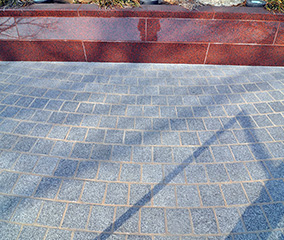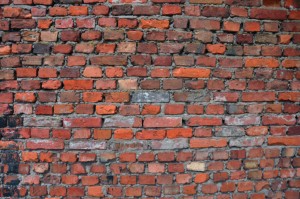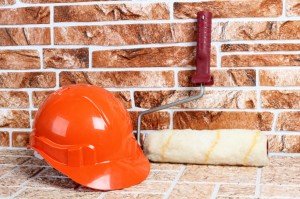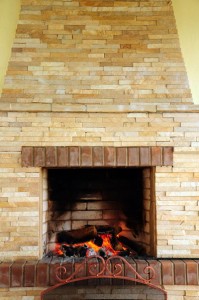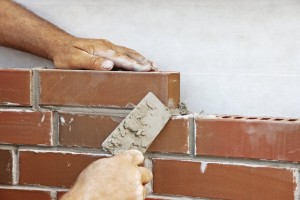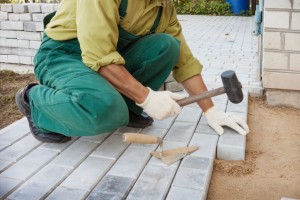If you have antique brickwork, you may have noticed one of many different types of surface treatments that were popular at the time the brickwork was constructed. The surface of brickwork was often treated to lend uniqueness to the facade, update the brickwork, or fix a poor tuckpointing job. Here are three types of surface treatments for bricks that you may have noticed on your antique brickwork. (more…)
Archive for the ‘ Brick ’ Category
Types of Surface Treatments for Antique Bricks
Monday, February 8th, 2016Tips for Tuckpointing Antique Brickwork
Friday, February 5th, 2016Tuckpointing is a way to remove old mortar between bricks and replace it with fresh new mortar. This is necessary if your brickwork is old and the mortar is crumbling. Adding new mortar can improve the structural integrity of old or antique brickwork. If you are considering tuckpointing some old brickwork, here are a few tips to consider. (more…)
Brick Veneer vs. Solid Brick
Friday, January 29th, 2016Brick veneer and solid brick structures use some of the same construction materials, but their installation techniques are different. Brick veneer is not, contrary to popular belief, composed of thin pieces of brick though it looks almost identical to a solid brick structure. Brick veneer is constructed from steel or wooden framing, covered with wood sheathing or insulation. A single layer of brick is built near each exterior wall and held fast with metal ties. Veneer brick does not support the structure of the house but serves an entirely cosmetic function. There are many benefits and advantages to this method. (more…)
Should I Paint My Brick Wall?
Tuesday, January 5th, 2016Ooh, exposed brick! How lovely! But might it look even lovelier with a gleaming new coat of bright white paint? Oh, the possibilities! Ultimately, the choice is up to you whether you want to maintain the beautiful and rustic clay color or make your brick surfaces stand out from the rest with a fresh coat of paint. The best we can offer is some advice before you take on the project. (more…)
How to Clean Interior Brickwork
Friday, December 18th, 2015You may have read our blog on cleaning exterior brickwork. The methods listed there are great for cleaning walls and walkways outside, but if you’re planning on cleaning inside brickwork, you’ll need to follow a different set of instructions. DelPrete Masonry is here to help you keep all of your brickwork looking as clean and new as possible! You may have a fireplace in your home that you’re thinking of firing up to use for roasting marshmallows or making popcorn. Or perhaps you have a rustic brick wall in your kitchen that needs a good cleaning. When brickwork is in your home, it’s both important to keep it clean as well as use safe cleaning methods. Follow these methods to have pristine, safe interior brickwork! (more…)
How to Clean Exterior Brickwork
Sunday, November 22nd, 2015
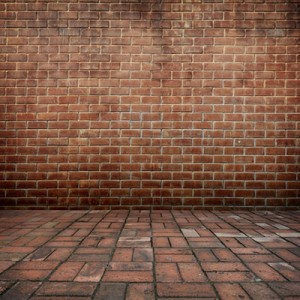
If your brickwork looks like it needs a good cleaning, make sure that you’re using the safest and most effective cleaning methods!
Bricks can be either sealed or unsealed; of course, unsealed bricks require more maintenance to keep up their appearance. Exterior bricks especially should be cleaned regularly. With winter approaching, exterior bricks easily build up salt, dirt, and grime. Make sure that your brickwork is looking its best with our cleaning tips.
Bucket and Brush Method
The bucket and brush method of cleaning is the most widely used and efficient means of cleaning brickwork. It does not require advanced equipment or skill, and it is easy and quick. Here are the steps required to clean your brickwork with this method:
- If your masonry is brand new, wait at least a week to give it its first cleaning. Use a scraping tool to rough away any hardened particles of mortar.
- Use a generous amount of water to saturate the brick wall. This will ensure that the wall does not develop any stains from cleaning, as dry bricks absorb dirt into their brick pores. Using a regular hose, and make sure all the bricks as well as the base of the masonry is drenched.
- Starting from the top, use a long-handled fiber brush to scrub cleaning solution onto the bricks. Sure Clean, Goldblatt Brick Bath, and Superior 800 series are all good choices for cleaning solutions. Be sure to ask your professional mason for their recommended ratios of solution to water.
- After scrubbing, allow the solution to sit and soak for three to six minutes. After soaking, wash off with the hose. Make sure that you’re washing only small parts of the brickwork at a time, rather than the entire wall or walkway. This will ensure that the bricks don’t dry and absorb stains that are impossible to remove.
- Tip: if your bricks are old and weathered, a better way to clean them is to simply use a duster or broom to sweep off dirt and grime. If you think your old bricks can withstand a tougher cleaning, start by testing a small corner first.
Keep Your Masonry Looking Good with Del Prete Masonry!
While there are many other materials that we use at Del Prete Masonry, we’re not about to abandon concrete anytime soon. It has proven its worth many times over and we know that we can bring you a solid masonry structure with it. To find out more about your masonry options including concrete masonry, please contact our office today at 410-683-0650 or email us at mike@delpretemasonry.com. We serve Baltimore City, County, Harford County, Carroll County, Anne Arundel County, and Howard County. Keep up with our blog for masonry related information, and follow us on Facebook, Twitter, and Google+.
Tips for DIY Brickwork
Saturday, November 7th, 2015While some projects will require a professional masonry service, there are other DIY brickwork projects that the average homeowner can complete.
Of course, proper preparation is most important when planning a DIY brickwork project. But, it’s also important that you have the right tips. Listed below are a few tips from Del Prete Masonry to help you get started on your DIY brickwork projects.
Purchase the Proper Tools
Before you start any projects, you want to make sure that you have all of the tools you need to complete your brickwork project efficiently. The last thing you want to do is have to run to the hardware store or order a specialty tool right when you are in the middle of your brickwork. Some of the tools you will need for your DIY project are spades and shovels, buckets, spot boards, bricklaying trowels, tape measures, bolster chisels and a soft hand brush just to name some of the most common tools for brickwork projects.
Focus on Safety
For any DIY project, especially a masonry project, you want to make sure that you and the individuals you are working with are completely safe. During some point of your brickwork, you will most likely find the need to cut some bricks to a certain size. When you do this, make sure that you and everyone working with you has his or her safety goggles on. Goggles are just like any of the tools you use, and goggles are necessary for your DIY brickwork.
Laying Bricks
Laying bricks is an art for a professional masonry service, but you can complete a basic brickwork project with a few tips. Always make sure that when you lay bricks the vertical joints are staggered. This gives the brickwork more support and strength. Also, remember that not all bricks are going to be perfectly square, so use your best judgment on whether you feel you need to cut the bricks. For any extensive projects, make sure to work with professional masonry service to make sure your project is absolutely perfect.
Del Prete Masonry
For any questions regarding new masonry construction, feel free to contact Del Prete Masonry. Our masonry restoration professionals have the experience and history of satisfied clients to prove that we’ll get the job done right, and cost-effectively. To get started with your masonry restoration project, please contact our office today at 410-683-0650 or email us at mike@delpretemasonry.com. We serve Baltimore City, County, Harford County, Carroll County, Anne Arundel County, and Howard County. Keep up with our blog for masonry related information, and follow us on Facebook, Twitter, and Google+.
Everything You Ever Wanted to Know About Bricks!
Friday, July 31st, 2015Bricks are one of the most common materials used in masonry projects for many reasons. They are reliable, durable, and beautiful, and can be used in a variety of different projects. But how much do you really know about them? How are bricks made? What is their history? Why should you choose bricks over granite, marble, or concrete? In this week’s blog, you’ll find out everything you ever wanted to know about bricks (and possibly more).
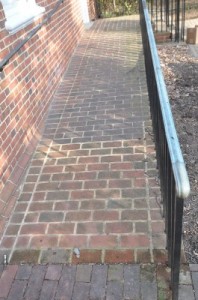
In this week’s blog, you’ll find out everything you ever wanted to know about bricks (and possibly more).
The History of Bricks
The oldest bricks ever discovered were made from shaped mud. They were found in Syria and are estimated to have been constructed in around 7500 BC. That’s about 9,500 years ago! Early civilizations in China and Europe have also been documented as using bricks for construction projects. The Ancient Greeks and Romans were some of the first to begin using fired bricks, which we still use today. They built large brick buildings and stamped them with the seal of the legion.
How Bricks are Made
There are three main types of brick: un-fired, fired, and chemically set. Each type of brick is manufactured in a different way. (more…)
Choosing the Right Masonry Contractor
Thursday, July 23rd, 2015When remodeling or constructing a new building, quality stonework can add a unique, ageless aesthetic. Regardless of whether you know exactly what you want and how you want it or if you only have the vaguest idea, picking the right masonry contractor is the biggest factor in your satisfaction with the result. There are several strategies that you can employ to make sure you find the right masonry contractor for your work at the best price.
Watch Out for These Signs of Poor Masonry Work
Friday, July 17th, 2015Take a look at the brick buildings and structures on your property. How do they look? Unfortunately, although brick is a great, sturdy material to build with, unsafe practices can make it hazardous. If your brickwork was done by a sketchy masonry company or built very many years ago, you’re going to need to watch out for signs that it may be falling apart or in need of repair. Find out how to identify if you’ve been the victim of poor masonry work by reading the following tips:
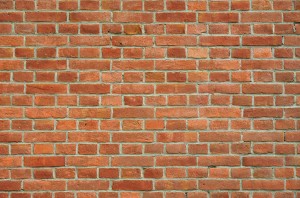
Find out how to identify if you’ve been the victim of poor masonry work by reading the following tips.
Poor Masonry Work Signs
- Cracks
Cracks indicate weakness in the structure and are never a good sign, whether they’re horizontal or vertical. If you see heavy vertical cracking, however, it could mean that the foundation has settled.
- Faulty alignment
Sometimes, the mortar can react to water and expand, which will in turn push the bricks out of alignment. If your structure is fairly old, this can be a common problem.
- Parging
A shoddy construction company will sometimes cover bricks that are structurally unsound with a layer of this material. It resembles a smooth stucco, but its purpose is really just to hide defects within poor masonry work.
- Wooden beams and lintels
If you’re the owner of an older building, you may have noticed that your building is supported with wooden frames. However, recently we’ve discovered that these wooden frames can’t always fully support the weight of bricks. In the event of a fire, they’re also more likely to burn and potentially collapse your building.
- Sand lime mortar
Although this type of mortar was commonly used during the 20th century, it does have a fairly high risk of failure. It can be rinsed away when exposed to enough water due to it being water-soluble.
If you’re looking for a professional masonry construction company that won’t cut corners, look no further. Get in touch with DelPrete Masonry today!
At DelPrete Masonry, we offer professional masonry restoration for your building or structure. DelPrete Masonry is a commercial masonry construction and restoration company that services Baltimore and the surrounding area. For more than 25 years, we’ve been performing quality masonry work for a wide variety of clients with different masonry needs. We’ve built a solid reputation for ourselves in the Baltimore area as a leading commercial masonry service. For more information, please contact our office today at 410-683-0650 or email us at mike@delpretemasonry.com. We serve Baltimore City, County, Harford County, Carroll County, Anne Arundel County, and Howard County. Keep up with our blog for masonry related information, and follow us on Facebook, Twitter, and Google+.





























